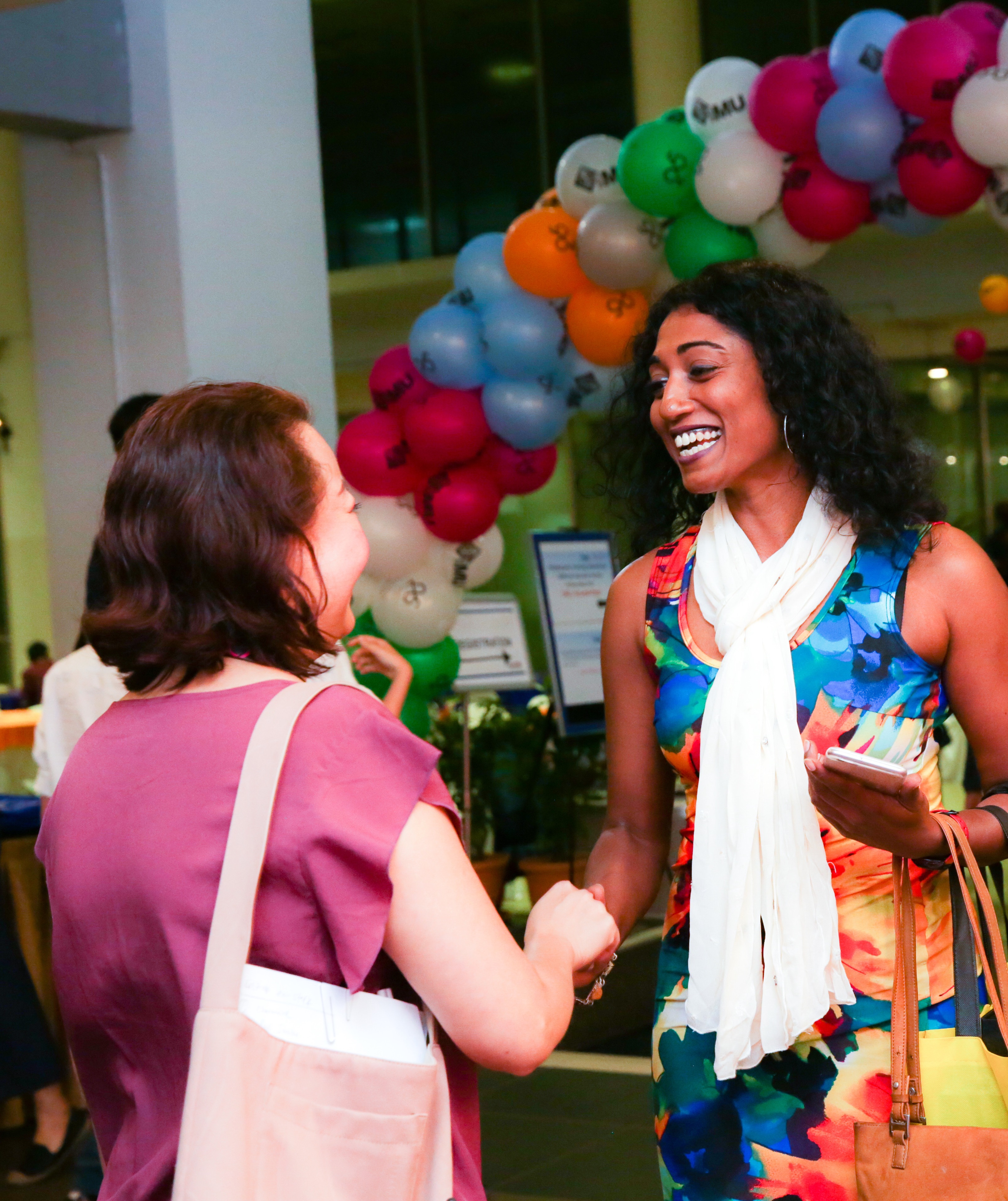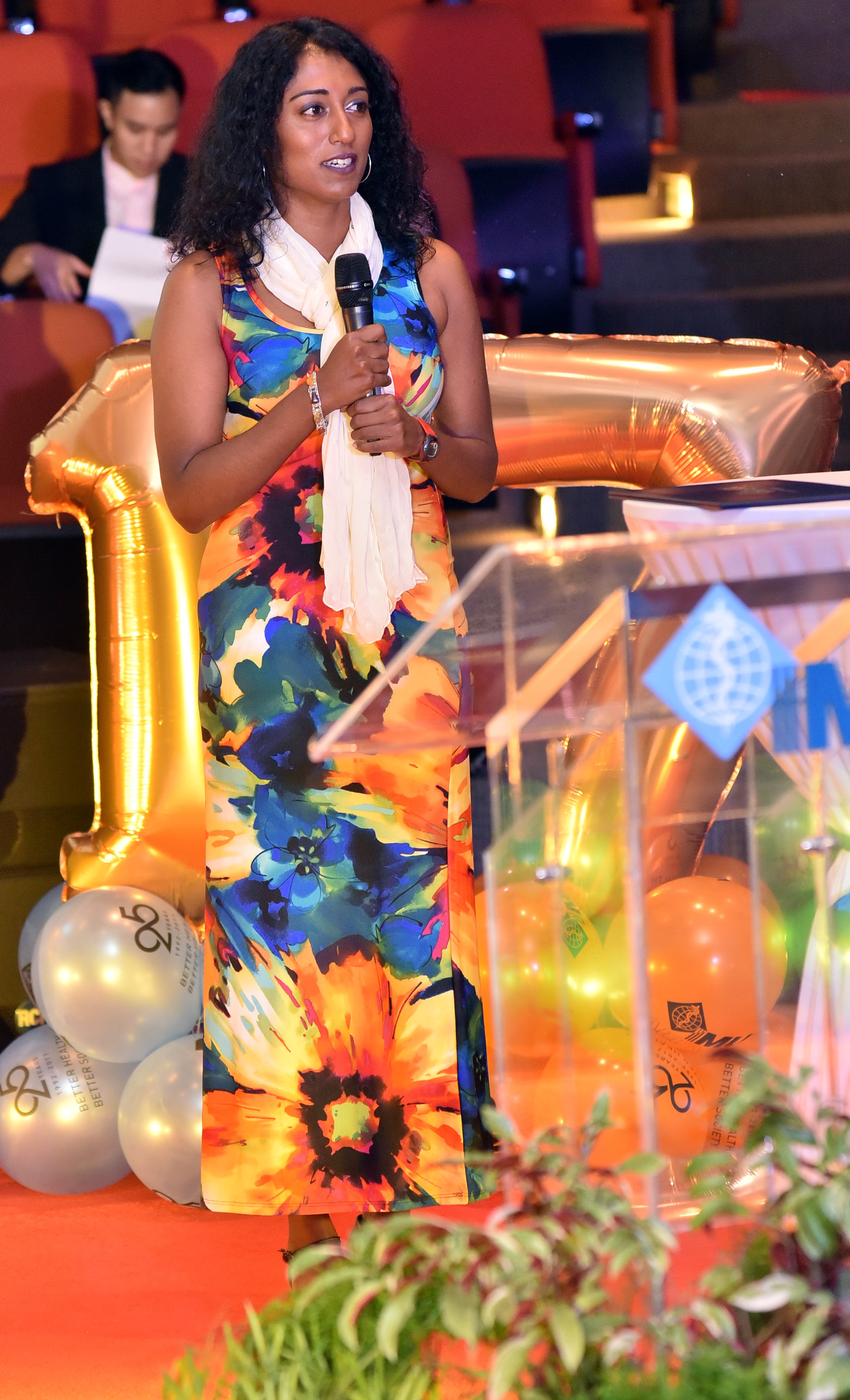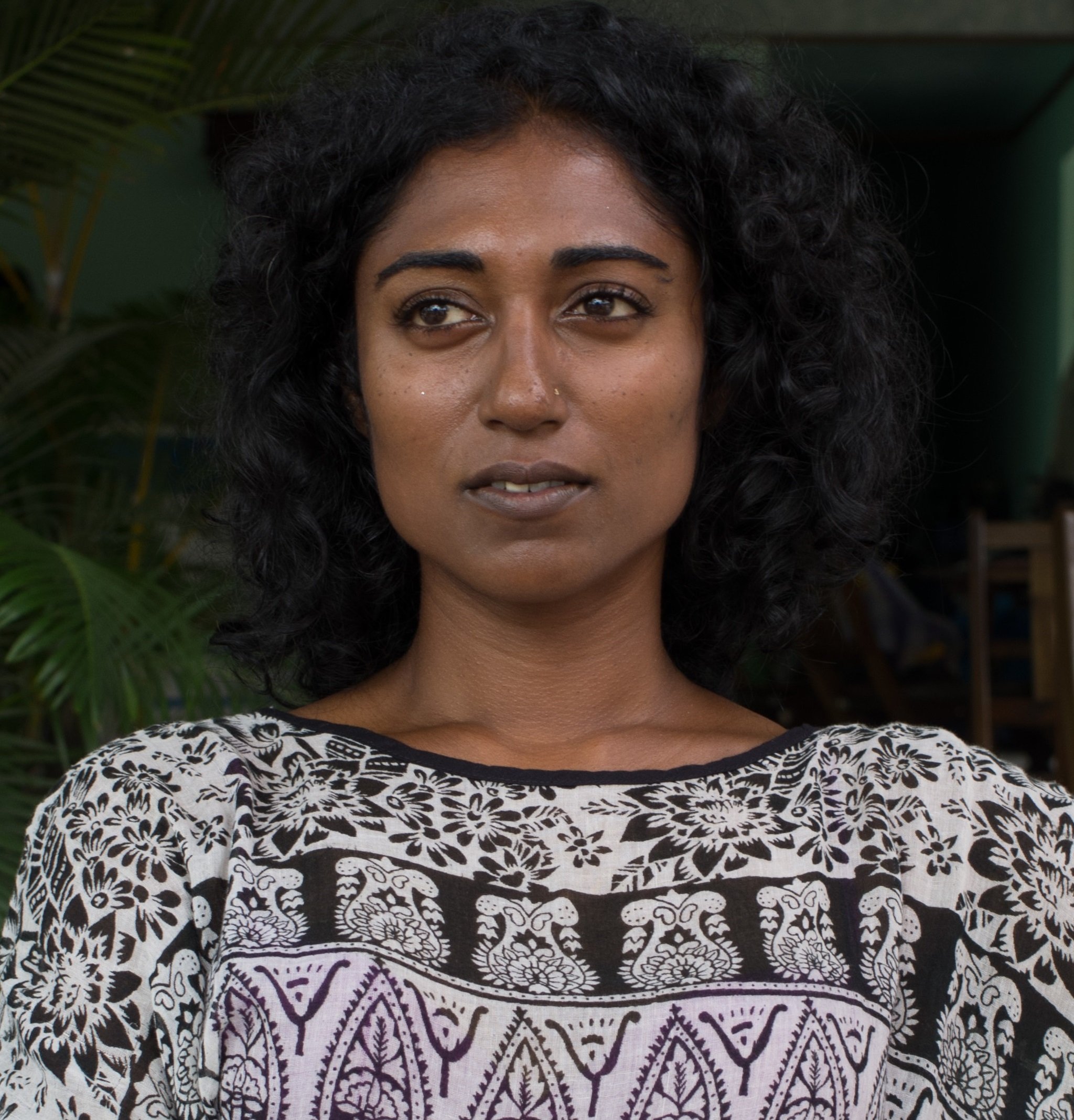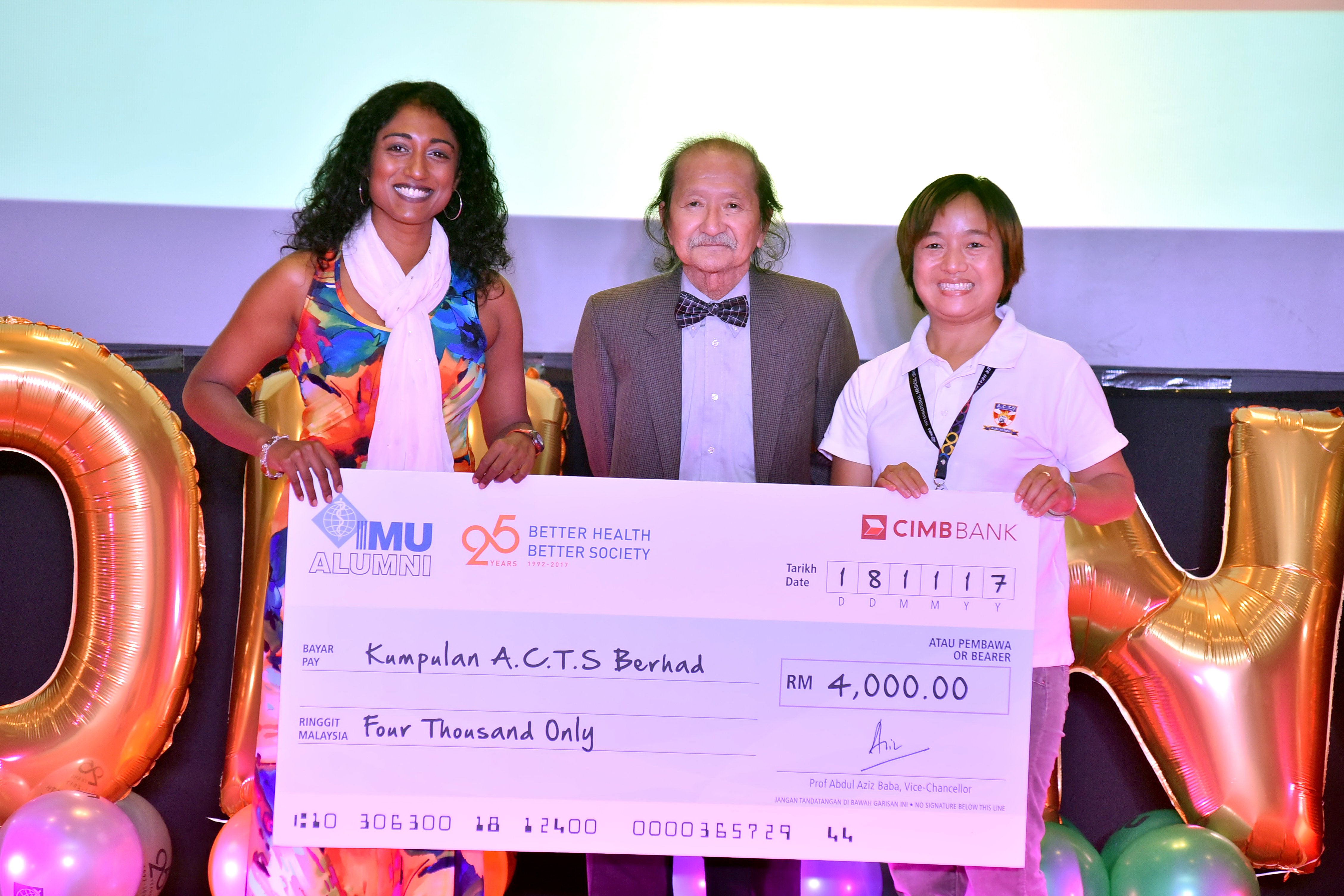Dr Sharminithevi Paramalingam’s involvement in community work started with a community project that her alma mater, International Medical University (IMU) organised when she was in the third year of her medical studies at the University. It was a mass screening for the community in Seremban and involves all walks of life. “At this screening,. I was assigned to take measurements like blood pressure, pulse rate and capillary sugar if applicable. Just simple things like that but I remember it left me feeling so empowered doing this. For a 3rd year student, this was important because at this stage in our studies, we have to be able to break the ice with patients we meet to gain their trust in telling us more and entrusting us with their bodies and well-being. This project gave me the confidence to communicate with people and trust my abilities to do these simple procedures smoothly. Meeting so many people and talking to them was something that I also really enjoyed because I feel that I connect well with people and vice versa. I remember having this realisation that I wanted to do more of this in my life.”  This is a change from when she first started her studies at IMU. Dr Sharminithevi Paramalingam (better known as Dr Sharmini) wasn’t really sure then if medicine really suited her. “The first day in IMU learning about the Kreb cycle stirred a lot of confusion in me! Yet, I carried on. My brother who did medicine too is a major role model in my life academically and I kept thinking if he can do it, I can do it too. Somehow, medicine started making more sense when I went into clinical years, where science and practical application came together. This was also where I discovered how much of an impact doctors and nurses make in people’s lives whilst caring for them. And how much making that difference in people’s lives made a big difference in mine too. This was the biggest motivation I had and was more determined to become a doctor.” Years later, after graduating with her degree, Dr Sharminithevi Paramalingam worked as a general surgeon and lecturer at Universiti Malaya Medical Centre (UMMC). She loved surgery and working at a teaching hospital like UMMC where training, while gruelling, was second to none. She enjoyed teaching and serving her patients but at the same time she felt that she was in a rut.
This is a change from when she first started her studies at IMU. Dr Sharminithevi Paramalingam (better known as Dr Sharmini) wasn’t really sure then if medicine really suited her. “The first day in IMU learning about the Kreb cycle stirred a lot of confusion in me! Yet, I carried on. My brother who did medicine too is a major role model in my life academically and I kept thinking if he can do it, I can do it too. Somehow, medicine started making more sense when I went into clinical years, where science and practical application came together. This was also where I discovered how much of an impact doctors and nurses make in people’s lives whilst caring for them. And how much making that difference in people’s lives made a big difference in mine too. This was the biggest motivation I had and was more determined to become a doctor.” Years later, after graduating with her degree, Dr Sharminithevi Paramalingam worked as a general surgeon and lecturer at Universiti Malaya Medical Centre (UMMC). She loved surgery and working at a teaching hospital like UMMC where training, while gruelling, was second to none. She enjoyed teaching and serving her patients but at the same time she felt that she was in a rut.
So in 2015, Dr Sharmini¬ made the difficult decision to leave her job at the hospital. She knew it was the right thing to do especially after volunteering at a medical camp in Laos where a team of them went to 30 villages in Laos, treated about 3,000 villagers and performed minor surgeries in make shift surgical theatres. It was invigorating, a really positive experience and it assured her that she was making the right decision to leave the hospital.
“Leaving my job at the hospital was a very emotional process for me because the protective umbrella has been removed and now I have to pave my way forward with my beliefs and ideas and passion. I love travelling, it centres me. I travelled extensively in South East Asia. Also I had much time to spend with loved ones, which I enjoyed very much. I tried to involve myself in medical volunteer work in whatever way I can and these opportunities came up in Laos, Myanmar and Malaysia. I also discovered other personal and professional skills in me. I felt like I was growing more as a human being and my priorities in life were getting clearer. These opportunities were so special and I feel so blessed to have experienced it the way I did.”  Dr Sharmini did this for 1.5 years before joining the workforce again. Today, Dr Sharmini is a medical doctor who serves to provide medical care in an oil refinery construction site in the outskirts of Pengerang, Johor. It is her aim to work with organisations committed to take affirmative action to serve sections of community to enrich, reintegrate and bring meaningful changes in their lives. Her vision in working with such organisations is to empower people who are in the fringes, marginalised and forgotten by society and act as a catalyst to bring about a renaissance in their way of thinking and their lives in particular. “For now, I’m happy the way things are going with work and life in general. I always believe that passion is the most important driving force in life. There’s a quote that sticks with me, saying that if we love our job, we won’t work a single day in our life. That’s my motto when it comes to work. I love teaching and taking care of people. The oil and gas industry is very interesting to me. I enjoy what I am doing here and I learn a lot day to day. Apart from that, I can see myself getting more involved with international or local humanitarian organisations and also as a person who teaches medical personnel. Sometimes, I feel with all the potential that we have within us, it is good to venture into many areas that encourages these potentials instead of being only in one place. Variety is the spice of life!”
Dr Sharmini did this for 1.5 years before joining the workforce again. Today, Dr Sharmini is a medical doctor who serves to provide medical care in an oil refinery construction site in the outskirts of Pengerang, Johor. It is her aim to work with organisations committed to take affirmative action to serve sections of community to enrich, reintegrate and bring meaningful changes in their lives. Her vision in working with such organisations is to empower people who are in the fringes, marginalised and forgotten by society and act as a catalyst to bring about a renaissance in their way of thinking and their lives in particular. “For now, I’m happy the way things are going with work and life in general. I always believe that passion is the most important driving force in life. There’s a quote that sticks with me, saying that if we love our job, we won’t work a single day in our life. That’s my motto when it comes to work. I love teaching and taking care of people. The oil and gas industry is very interesting to me. I enjoy what I am doing here and I learn a lot day to day. Apart from that, I can see myself getting more involved with international or local humanitarian organisations and also as a person who teaches medical personnel. Sometimes, I feel with all the potential that we have within us, it is good to venture into many areas that encourages these potentials instead of being only in one place. Variety is the spice of life!”  Currently, Dr Sharmini is volunteering as a doctor at Mediciens Sans Frontier(MSF)’s free clinics for the Rohingya refugees in Penang, Malaysia. She has also been a volunteer doctor at Women’s Aid Organisation(WAO) doing basic health screening and awareness among the women and children in its shelter, medical missions to Laos and Myanmar, as well as a mobile clinic for the homeless. Dr Sharmini was also involved in providing education on basic healthcare to the children and caregivers at House of Hope orphanage and collaborated to provide lunch to the orphanage once a week for a duration of 6 months. Dr Sharmini has also been a tutor in the Silent Mentor programme a total of 5 times. The silent mentors are deceased patients who have agreed to donate their bodies for the purpose of medical education after their demise. In this programme, Dr Sharmini taught medical students to perform procedures like suturing, chest tube insertion, central venous cannulation and endotracheal intubation.
Currently, Dr Sharmini is volunteering as a doctor at Mediciens Sans Frontier(MSF)’s free clinics for the Rohingya refugees in Penang, Malaysia. She has also been a volunteer doctor at Women’s Aid Organisation(WAO) doing basic health screening and awareness among the women and children in its shelter, medical missions to Laos and Myanmar, as well as a mobile clinic for the homeless. Dr Sharmini was also involved in providing education on basic healthcare to the children and caregivers at House of Hope orphanage and collaborated to provide lunch to the orphanage once a week for a duration of 6 months. Dr Sharmini has also been a tutor in the Silent Mentor programme a total of 5 times. The silent mentors are deceased patients who have agreed to donate their bodies for the purpose of medical education after their demise. In this programme, Dr Sharmini taught medical students to perform procedures like suturing, chest tube insertion, central venous cannulation and endotracheal intubation.
Dr Sharmini received the Young Alumnus Award – Contributions to the Community at the IMU Alumni Homecoming 2017. For this, she received a trophy, a certificate and RM5,000 cash prize. Out of the RM5,000, four thousand Ringgit Malaysia was donated to the NGO of her choice.
Dr Sharmini nominated Kumpulan ACTS Berhad to receive the donation from the prize as she had been involved with clinics organised by ACTS collaborating with MSF to treat refugees for a few years. “They are doing excellent and commendable work. Clinics are held in schools or town halls to cater to a big crowd. The setup is b
asic. Though effective, I believe more can be done to enhance the facilities available for these clinics. I hope this money can be channelled in such manner.”  Kumpulan ACTS Berhad was established on 17 July 2003, for the purpose of providing organized assistance to refugees and asylum seekers as well as to detainees in immigration detention centres in Peninsula Malaysia. Its acronym stands for “A Call To Serve”. A faith-inspired organization, its primary objective is to provide for the medical and mental health care needs of refugees and asylum seekers, including detainees of Immigration Detention Centres also known as IDCs. They try as far as possible to ensure that the refugees’ physical needs are met, i.e. in providing supplementary food aid in the form of rice, lentil, cooking oil, for those who are unable to secure regular work; milk and biscuits for children. Hygiene packets of soap, toothpaste, sanitary pads are distributed periodically.
Kumpulan ACTS Berhad was established on 17 July 2003, for the purpose of providing organized assistance to refugees and asylum seekers as well as to detainees in immigration detention centres in Peninsula Malaysia. Its acronym stands for “A Call To Serve”. A faith-inspired organization, its primary objective is to provide for the medical and mental health care needs of refugees and asylum seekers, including detainees of Immigration Detention Centres also known as IDCs. They try as far as possible to ensure that the refugees’ physical needs are met, i.e. in providing supplementary food aid in the form of rice, lentil, cooking oil, for those who are unable to secure regular work; milk and biscuits for children. Hygiene packets of soap, toothpaste, sanitary pads are distributed periodically.
Her advice to future doctors is to ”Be true to yourself, feel blessed that you have the capacity to touch peoples lives and also have the privilege to grow from it. Always be open to learn.”
Related article: IMU Honours Four Outstanding Alumni

